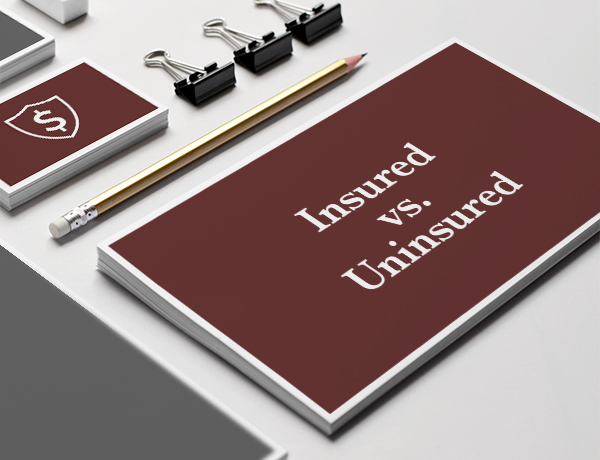6 Tips to Help You Prepare for Natural Disasters
Flooding, tornadoes, hurricanes, wildfires—it feels like a week doesn't go by without one of these natural disasters popping up in the news. Every part of the country is faced with its own environmental threats, meaning every homeowner should be prepared for their own worst-case scenario. But the truth is, many Americans struggle to keep emergency funds on hand. According to a recent survey, only 56 percent of Americans would be able to pay for an unexpected $1,000 bill with their savings. The rest would be left racking up credit card debt, borrowing from friends and family, or taking out a personal loan. Before disaster strikes, we're helping you prepare your finances with these six tips for financial preparedness in the wake of a natural disaster.1
Tip #1: Fill Up Your Emergency Fund
First things first: if you don't have a dedicated emergency fund, it's time to start one. And if you've been slowly draining your fund for non-emergency spending, focus on filling it back up. While your insurance may cover the damage done by whatever disaster has just occurred, it could be a little while until you see any money coming your way. In the meantime, you could be stuck paying for nights in a hotel, meals for your family, gas, medical bills, and other expenses. Depending on the disaster, your place of work may be affected as well, meaning you could even be out of work for an extended period of time.
Tip #2: Prepare for Unexpected Expenses
Speaking of keeping your emergency fund full, a natural disaster can incur unexpected—and often costly—extra expenses. If a hurricane is nearing the coast, it's not out of the question to see hotels inland raise their prices. The same goes for gas, food, and water. With the rise in demand can come a surge in pricing. In addition, if you're making claims through your insurance, you could expect costly deductibles. And if a power surge occurs, your appliances may need to be replaced. Together, these extra expenses can add up quickly.
Tip #3: Keep Cash on Hand
It's generally a good idea to keep a stash of cash on hand, but it's especially important if you're preparing for the possibility of a natural disaster. Whether you're facing a blizzard, hurricane, or tornado, your town or city could easily go days or weeks without power. That means merchants in your area may be without power as well, which could make them cash-only businesses for the time being. Keeping some cash on hand (smaller bills are usually preferred) could allow you to still purchase essentials, including food, water, and shelter.
Tip #4: Assess Your Insurance Policies
If we asked you to list off exactly what is covered by your insurance policies, could you? If you're like most, probably not. But trying to make a claim with your insurance company days after a natural disaster has occurred is not the time to learn that your property wasn't covered. Instead, take the time well before a natural disaster strikes to discuss with your partner and your insurance provider what your homeowners or other insurance policy protects. Together, you can discuss any additional coverage or changes that could help keep you and your belongings protected in the future.
Tip #5: Always Keep Records of What You Own
Once you're sure your insurance policy has you covered, you need to be ready to make a claim at any time. That means keeping accurate records of what you own, what you paid, and how much it's worth. Keep a spreadsheet, photos, or video of your current valuables as well as their cost price and current value. This can help to keep the claims process moving when it comes to getting reimbursed for your lost possessions. Try to save digital copies outside of your house in the event your home or files are destroyed due to the natural disaster. This could include keeping digital records in the cloud or physical copies in a safety deposit box or stored at a relative's house.
Tip #6: Set Up Autopay
We've already discussed the extra expenses you may want to prepare for when recovering from a natural disaster. But one extra expense you shouldn't have to worry about is late fees. Setting up autopay on your credit card, car payment, cable bill, mortgage, or other ongoing expense is one way to avoid missed payments in the wake of a natural disaster. The last thing on your mind when a natural disaster strikes is paying the cable bill, and understandably so. Autopay can make life easier any day of the week, but it can also mean one less thing on your plate after a disaster occurs and your world gets a bit more chaotic.
No matter where you live, you just never know when disaster may strike. And as you're left with the emotional turmoil of putting the pieces of your life back together, it's important to know that you're financially well-grounded. Following these six tips above well before a natural disaster occurs will help keep you and your family financially prepared for the unexpected.
1. CNBC.com, January 19, 2022
The content is developed from sources believed to be providing accurate information. The information in this material is not intended as tax or legal advice. It may not be used for the purpose of avoiding any federal tax penalties. Please consult legal or tax professionals for specific information regarding your individual situation. This material was developed and produced by FMG Suite to provide information on a topic that may be of interest. FMG, LLC, is not affiliated with the named broker-dealer, state- or SEC-registered investment advisory firm. The opinions expressed and material provided are for general information, and should not be considered a solicitation for the purchase or sale of any security. Copyright FMG Suite.



